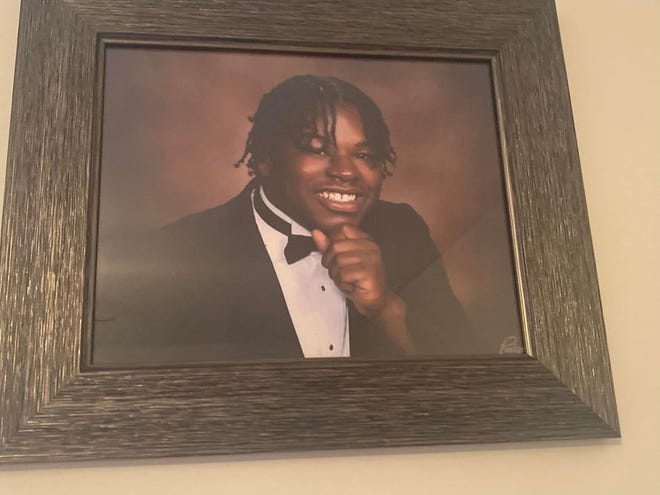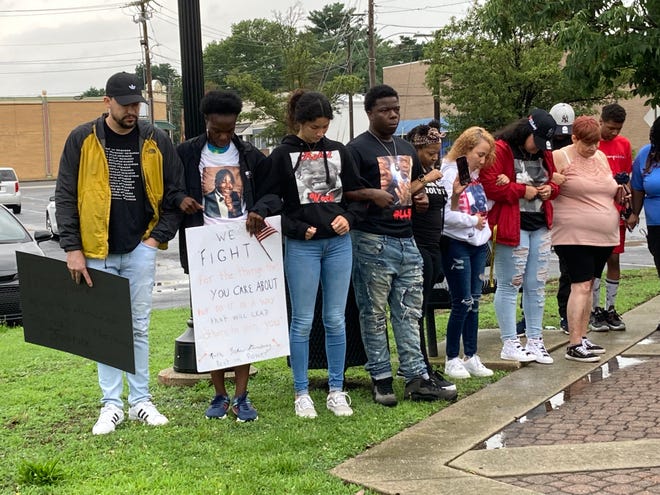“No justice, no peace!”
The chant echoed through downtown Milford as marchers took to the streets to demand accountability for the death of Rodney “Keef” Robinson, who was shot by a Dewey Beach police officer on March 19. His mother said he would have turned 22 next week.
Over 30 people gathered at the Riverwalk on Saturday afternoon, including many of Robinson’s friends and relatives. They held their heads and signs high, marching through the rain as shop owners along North Walnut Street watched from their doorways.
BACKGROUND:Why friends and family are stunned by death of man fatally shot by Dewey Beach police
The march was organized by Jalyn Powell, a local activist who started the Sussex County-based Walk of Change in 2020 after noticing a lack of racial justice marches in southern Delaware. And while Saturday’s walk was far from the first protest she set up, Powell said this one hit closest to home.
“It’s one thing to fight for someone across the country, but it’s another thing to fight for someone right in your backyard,” she said.
DATABASE:Tracking gun violence in Delaware

Patrick Gallagher, the attorney representing the Robinson family, said the investigation process for civil rights violations is a long one. In the case of Lymond Moses, a Black man who was fatally shot by Wilmington police in January of 2021, the Department of Justice’s ruling wasn’t handed down for almost a year.
Gallagher said Robinson’s family is seeking compensation and punitive damages against the white officer who killed Robinson. The officer has been put on paid administrative leave, and officials still have not said why he fired his gun while Robinson was running away.
This is not the first time the Dewey Beach Police Department has come under scrutiny. In a legal complaint filed on behalf of a man who was attacked by a Dewey Beach police officer in 2019 and then wrongfully accused of attempting to strangle the officer, Gallagher noted a “history of excessive force cases” within the department.
RELATED:They’re banded together by police violence. Now, they’re committed to accountability
Powell said seeing Robinson’s loved ones come together Saturday to protest was “heartwarming and heartbreaking at the same time.” She was glad to see that “there’s still people willing to fight;” while, at the same time, she recognized that they’re having to join together “to basically fight for (their) humanity.”
She urged attendees to carry this momentum beyond the march and go out to vote in the fall.

“We can chant all day long. We can gather together at rallies. But (change) starts at the polls.”
For Robert Travis Howard, Rodney Robinson’s uncle, the way to prevent future police brutality is through unity with the community. But for that to happen, officers must be “open enough to see people as humans … and understand that training is important.”
MORE:Why, despite lawmaker promises, police reform has gone nowhere in Delaware
His nephew’s death “shattered” their family, Howard said. But in the almost four months since then, Howard said he’s found a way to learn and “take the good” out of the situation — just like Robinson would have wanted him to.
“(Robinson) was a person of joy,” Howard said. “Take that part and let it live through us and he will never die.”
Send story tips or ideas to Hannah Edelman at hedelman@delawareonline.com. For more reporting, follow them on Twitter at @h_edelman.